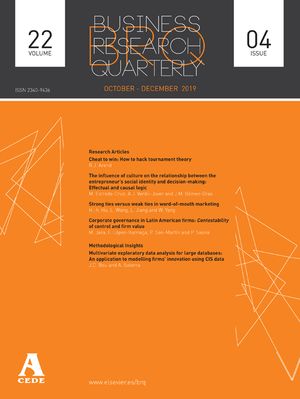La reputación ha tomado una creciente importancia tanto en el ámbito académico como empresarial en los últimos años. Sin embargo, no existe unanimidad en cuanto a su definición y su consideración como recurso y capacidad, dado el gran número de trabajos que sobre este concepto se han desarrollado. Esta confusión exige un estudio pormenorizado del concepto y de sus características, que ayuda a clarificarlo y a identificar los principales beneficios que genera, así como su relación con los resultados empresariales.
The reputation has taken an important growth in both the academic and business communities in the last years. However, unanimity doesn’t exist with reference to its definition and its consideration like resource and capacity, provided that the developed great number of publications on the theoretical concept. This confusion demands a detailed study of the concept and its characteristics that help to clarify it and to identify its main benefits, the same way as its relationship with the managerial results.




